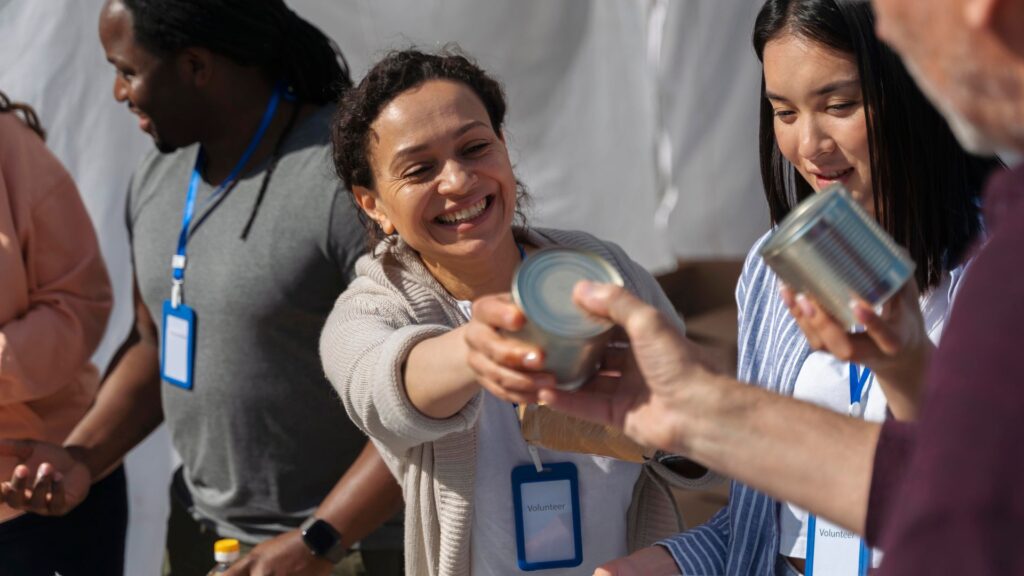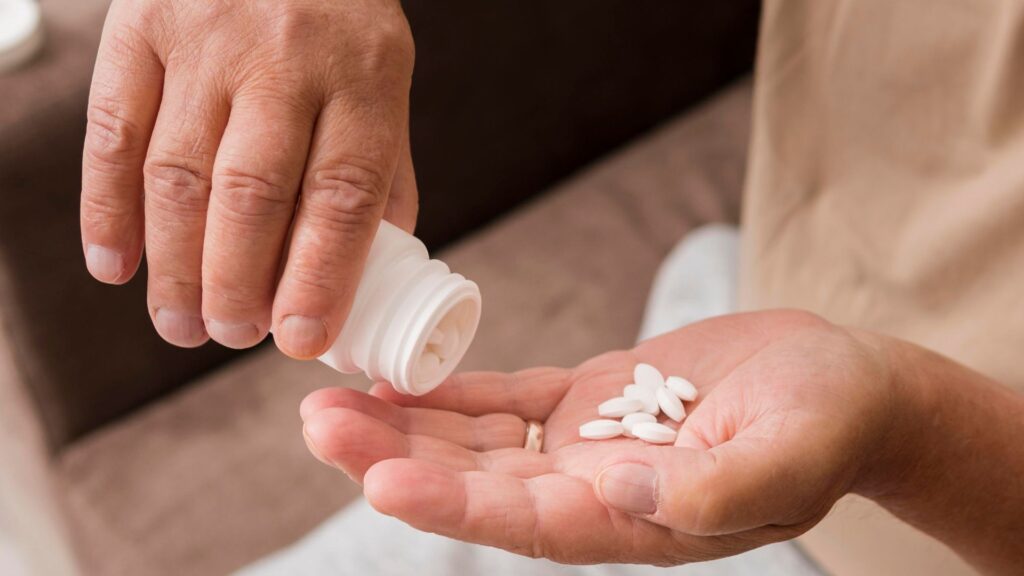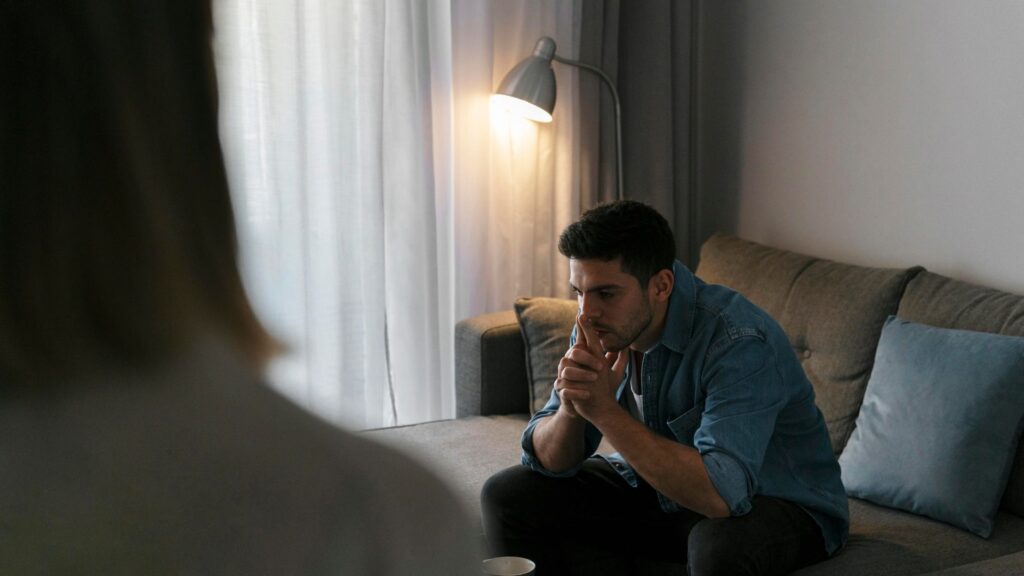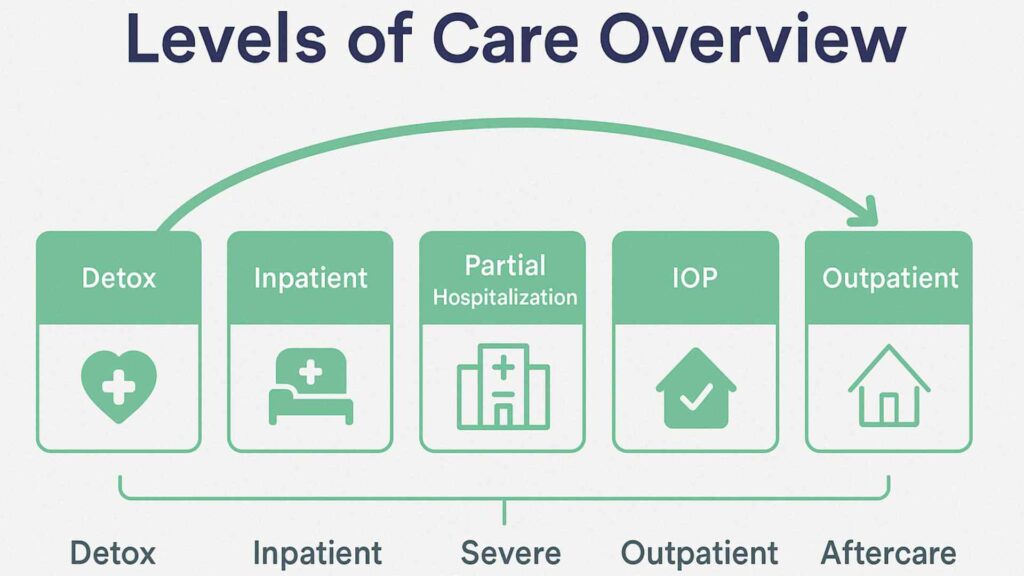Intensive Outpatient Programs (IOPs) have become an essential treatment option for individuals facing mental health and substance use disorders. Offering a higher level of care than traditional outpatient therapy, yet less intensive than inpatient or residential programs, IOPs provide a flexible and structured environment that allows individuals to work on their recovery while maintaining their daily responsibilities.
This article will explain how an IOP works, its structure, and how it supports individuals in their journey to recovery.
What Is an IOP?
An Intensive Outpatient Program (IOP) is a structured, yet flexible outpatient treatment program option for individuals seeking treatment for substance abuse and mental health disorders. It provides intensive therapy and support while allowing patients to continue living at home and engaging in daily activities.
Unlike residential or inpatient programs, which require individuals to live at a treatment facility full-time, IOPs enable participants to attend therapy sessions several times a week, usually ranging from 2 to 4 hours per session.
In this outpatient setting, individuals can receive intensive care and support while continuing to live at home and manage their responsibilities.
Initial Assessment and Treatment Planning
When someone enters an Intensive Outpatient treatment, the first step is a comprehensive assessment. This evaluation involves gathering information about the individual’s mental health history, substance use issues, and any co-occurring mental health disorders.
The goal of this assessment is to understand the specific challenges the individual faces and to create a personalized treatment plan, whether it’s a Mental Health, Co-Occurring Disorder, or addiction treatment plan. This plan outlines the therapies, the frequency of sessions, and the goals for treatment.
The structured treatment program is customized to each person’s unique needs. Whether the individual is an adolescent struggling with anxiety, depression, or substance abuse, or an adult managing mental health issues, the plan will be designed to address these specific issues. For youth, the treatment plan often focuses on their developmental needs, including strategies to build emotional resilience and manage peer pressure, particularly when substance use disorders are involved.
Frequency and Duration of Treatment
IOP programs typically involve therapy sessions 3-5 days per week, lasting between 2 and 4 hours. The exact frequency and duration depend on the individual’s needs, progress, and the severity of their condition. For some, IOP treatment may last only a few weeks, while others may participate for several months. The program’s flexibility allows it to adapt to the individual’s recovery journey, ensuring they receive the appropriate support at the right time.
For adolescents, IOPs are designed around their school or extracurricular activities, allowing them to continue their education and social development while receiving intensive care. One key benefit of IOPs is the ability to attend therapy sessions while still living at home and maintaining personal responsibilities.

What Happens in an Intensive Outpatient Program?
A typical IOP session combines individual therapy, group discussions, skill-building exercises, and educational workshops. Each session is designed to help individuals work toward their recovery goals, including managing symptoms, reducing the risk of relapse, and building emotional resilience.
What happens in intensive outpatient programs is carefully structured to support recovery, with group therapy being a central component. During these sessions, participants may discuss coping with stress, identifying triggers, or improving relationships. Individual therapy sessions focus on more personal challenges, allowing individuals to explore deeper issues and receive tailored support.
These sessions address current struggles and prepare individuals for life outside of treatment. The structured nature of IOP helps participants gain the tools and confidence they need to succeed in their recovery journey.
Core Components of IOP Treatment
An Intensive Outpatient Program (IOP) includes several core components designed to support recovery from mental health and substance use disorders. Individual therapy provides personalized support, helping individuals explore underlying issues, develop coping strategies, and set recovery goals. Group therapy fosters connection and reduces isolation by allowing participants to share experiences and learn from others, while also building skills for managing stress and emotions.
Family therapy (optional) improves communication and resolves conflicts, ensuring a supportive home environment for long-term recovery. Psychoeducation teaches participants about mental health, substance use, relapse prevention, and coping mechanisms, equipping them with tools to manage triggers. For those requiring medication, medication management ensures proper oversight from medical professionals.
Some IOPs incorporate holistic activities like mindfulness, nutrition education, and stress management, providing a well-rounded approach to building resilience and overall well-being.
Therapeutic Approaches in IOP
IOPs utilize various therapeutic techniques to support recovery, including Cognitive Behavioral Therapy (CBT), Dialectical Behavior Therapy (DBT), and relapse prevention. CBT focuses on identifying and changing negative thought patterns that contribute to mental health and substance use disorders, helping individuals reframe unhealthy behaviors and develop healthier coping strategies.
DBT is particularly effective for those with intense emotional responses, teaching skills for emotional regulation, improving relationships, and managing stress. A key component of IOP is relapse prevention, which helps individuals recognize triggers, build coping strategies, and strengthen resilience to maintain long-term recovery, especially for those recovering from substance use disorders.
Role of Medical and Mental Health Professionals in IOP
Intensive Outpatient services are typically led by a multidisciplinary team that includes therapists, counselors, addiction specialists, and medical doctors. These professionals collaborate to ensure that all aspects of an individual’s recovery are addressed.
For those with mental health issues or co-occurring disorders, medical professionals are available to manage physical health concerns or provide medication management as needed. While IOP does not offer 24-hour supervision, the treatment center provides access to emergency support if necessary, ensuring that individuals have the resources they need during times of crisis.
Flexibility of IOP and Long-Term Support
IOPs offer flexibility, allowing individuals to continue their daily lives while receiving intensive support. Whether the individual is managing a mental health crisis or substance use disorder, IOPs offer an alternative to inpatient or residential treatment, making recovery accessible without the need for full-time care.
Additionally, IOPs provide long-term support options, including aftercare planning. As individuals complete their IOP treatment, they may transition into less intensive care, such as traditional outpatient therapy or community-based support programs. This gradual transition ensures that recovery is sustained over the long term.
Final Thoughts from Abundance Treatment
At Abundance Treatment, we provide compassionate and evidence-based care through our Intensive Outpatient Program (IOP) in Toledo, Ohio. Our program combines clinical expertise with a person-centered approach, offering flexible and affordable treatment for mental health and substance use disorders. We focus on empowering individuals, including adolescents, to build resilience and long-term recovery skills in a supportive and welcoming environment, helping them lead healthier, more fulfilling lives.





































